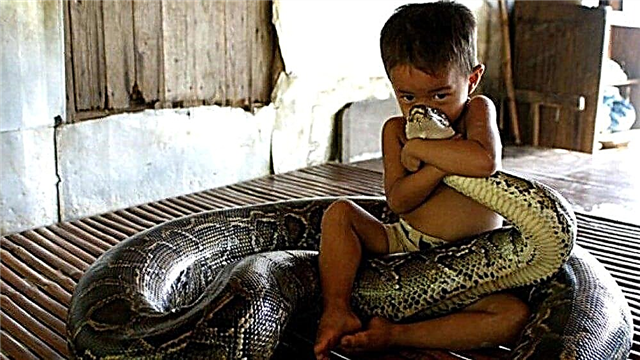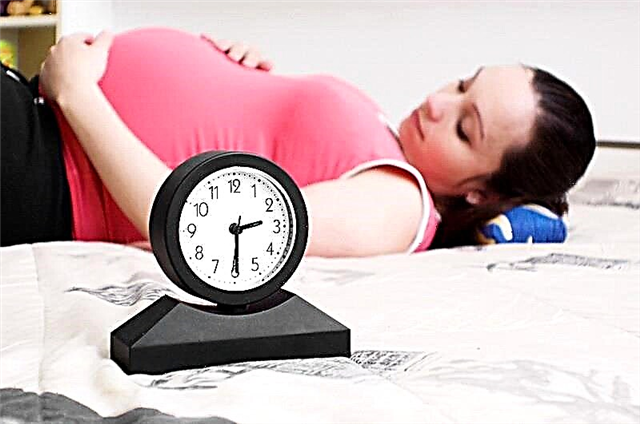
A symptom such as vomiting in a small child may be a harmless sign if, for example, it appears after overeating. However, much more often vomiting the child's body signals to adults about various diseases. Why can a child have bouts of vomiting, how is it dangerous and how can you help the baby?

Symptoms and possible causes, what to do?
How to distinguish from regurgitation?
In a small child who often spits up after eating, it is important to be able to distinguish this harmless condition from vomiting, which can be dangerous to the health and life of the baby:
Danger of vomiting
Although vomiting is a protective reflex to help remove toxins, microorganisms, foreign bodies or excess food from the body, it is often dangerous for a newborn or nursing infant.
In the first place, vomiting is dangerous to cause a state of dehydration. The child loses mineral salts and liquid, their balance in the tissues is disturbed, which affects the work of the whole body of the baby. And the smaller the crumb, the more dangerous such losses are for him. As soon as the parents notice that the baby's skin has become dry, the fontanel is fused, the baby cries without tears, is sluggish, there has been no urination for a long time, the baby's weight has decreased, you should immediately call a doctor.
Another unsafe consequence of vomiting can be the entry of vomit into the infant's airways. This is very dangerous, therefore, during an attack of vomiting, the child should be placed vertically, and in a recumbent position during sleep, the baby should always be with his head turned on its side.
Weight loss is another danger to babies who vomit frequently. For an infant, weight is an important indicator, especially if the infant is underweight or premature.

What to do?
If a nursing infant is vomiting, it is important to closely monitor the infant's condition to make sure it is not spitting up. In most cases, such a symptom at such an early age should be the reason for contacting a pediatrician. It is better to play it safe and show the baby to the doctor when a harmless situation has become the cause of vomiting, than to waste time and wait for a strong deterioration in the baby's condition.
When to Call a Doctor?
Parents should definitely seek medical attention in the following situations:
- The child is crying a lot, very restless, he has severe abdominal pain.
- If vomiting is present, the child has no stool.
- Symptoms of dehydration began to appear.
- Vomiting is repeated many times.
- The vomit is discharged in a fountain.
- Frequent stools joined vomiting.
- Before vomiting, the child fell from a height or hit his head.
- There are blotches of blood in the vomit, the masses are brown or black in color.
- The child has a high fever, is sleepy and lethargic.
- The kid refuses to eat or drink.
- With vomiting, everything that the baby ate and drank is released.

Treatment
The treatment for vomiting will depend on the cause that led to the onset of this symptom in the nursing infant. At the same time, parents should remember that the main danger of vomiting attacks is dehydration.
What to do before the doctor comes?
- It is important not to start to panic, but calmly wait for the pediatrician while staying with the child.
- The kid should be in an upright position.
- Try to move your child less.
- Wash your baby after each episode of vomiting and rinse your baby's mouth.
- Do not feed your baby any food other than breast milk or the usual formula.
- Give your baby electrolyte drinking solutions.
- If you gave the baby a solution, and after that there was another attack of vomiting, try to drink the solution again.
- Do not give any other medicines.
What fluids to give?
Give your child plenty of fluids to prevent dehydration. If the baby is receiving breast milk, it should be applied very often to the baby. The best option for replenishing the fluid lost during vomiting would be the use of special pharmacy mixtures of electrolytes.
If there is no opportunity to give the baby pharmaceutical preparations for rehydration, you can prepare a solution for soldering yourself by dissolving salt (a teaspoon without a slide) and sugar (4-5 teaspoons) in boiled water (1 liter). You can store such a solution for up to 24 hours. It should be given to the baby a few milliliters every 5-10 minutes.

A child with vomiting should not be given rice water, fruit juices, carbonated drinks, any kind of tea, or chicken broth or cow's milk. Drinking these drinks can further worsen the symptoms of dehydration.
The most important treatment for vomiting is the replenishment of the child's waste of fluids, and no medication can replace sucking the infant after episodes of vomiting. In addition, any drugs for infants should be prescribed by a doctor, since self-medication for such young children is very dangerous for their lives.
Antibiotics
When a child starts vomiting and diarrhea joins it, some parents think about an antibiotic. However, in young children, the use of antibacterial agents can be dangerous and cause a number of complications. Only a doctor should prescribe an antibiotic to a baby with vomiting.
Antidiarrheals for diarrhea
Both vomiting and liquefied stools are protective reactions that help to quickly remove harmful substances, bacteria and toxins from the baby's body. The use of anti-diarrhea drugs slows down the clearance of such substances from the gastrointestinal tract, which often leads to a worsening of the condition. The appointment of antidiarrheal drugs should be carried out only by a doctor and is justified only in cases of very profuse diarrhea, when the feces are watery and the child loses a lot of fluid with them.
Enterosorbents
This group of drugs is considered relatively safe for children, however, when it comes to treating infants, any medication should be given to the child very carefully. Sometimes the use of sorbents causes serious complications in young children.

Zinc
Studies have confirmed the effectiveness of the use of zinc preparations in the treatment of diarrhea in children. However, before giving these drugs to an infant, it is imperative to discuss such treatment with a pediatrician.
Prebiotics and Probiotics
The appointment of drugs of these groups is justified in situations where vomiting was caused by a bacterial or viral intestinal infection, as well as when the baby was treated with antibacterial agents.
How do you know if treatment isn't working?
You should be alerted by the following signs:
- Despite the measures taken, the condition of the crumbs worsened.
- Neither vomiting nor diarrhea has worsened in the last 24 hours.
- The baby developed lethargy and drowsiness.
- You started giving your child a lot to drink, and the vomiting got worse.



